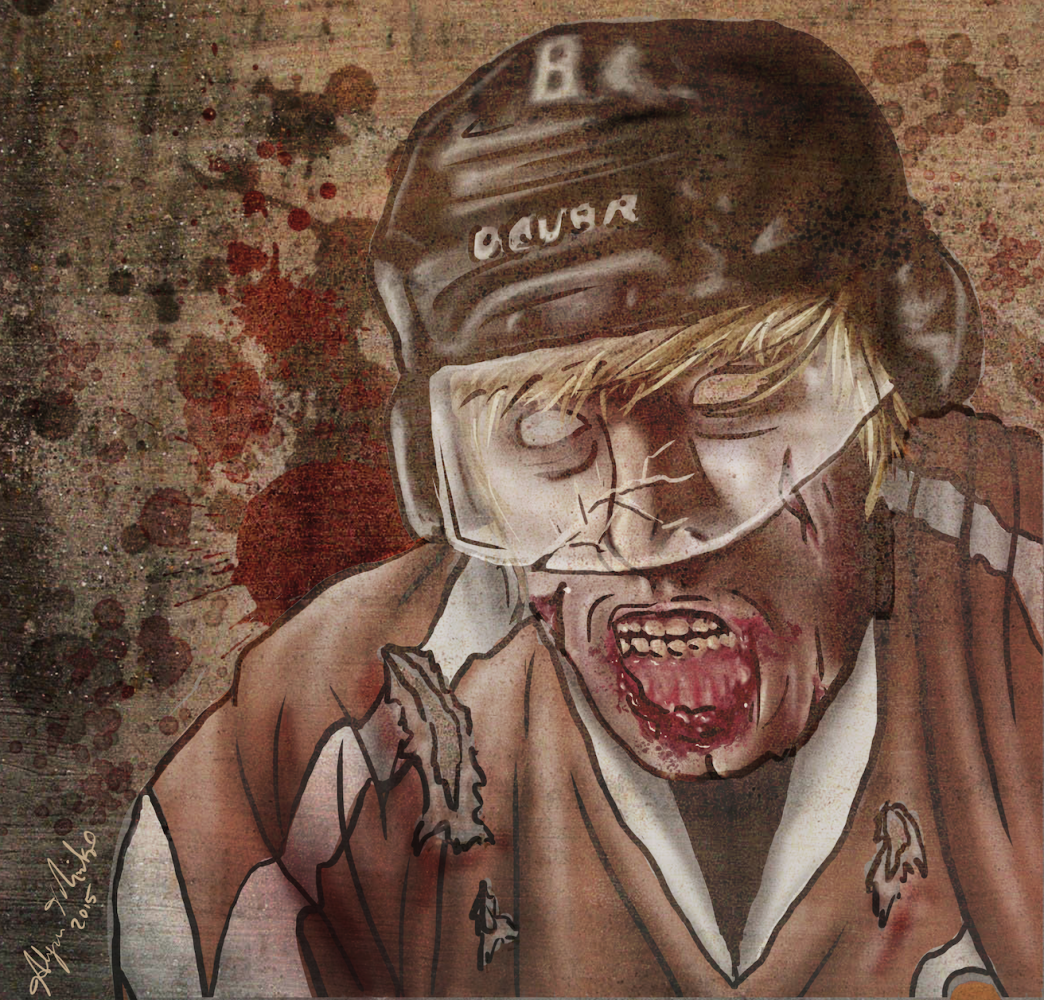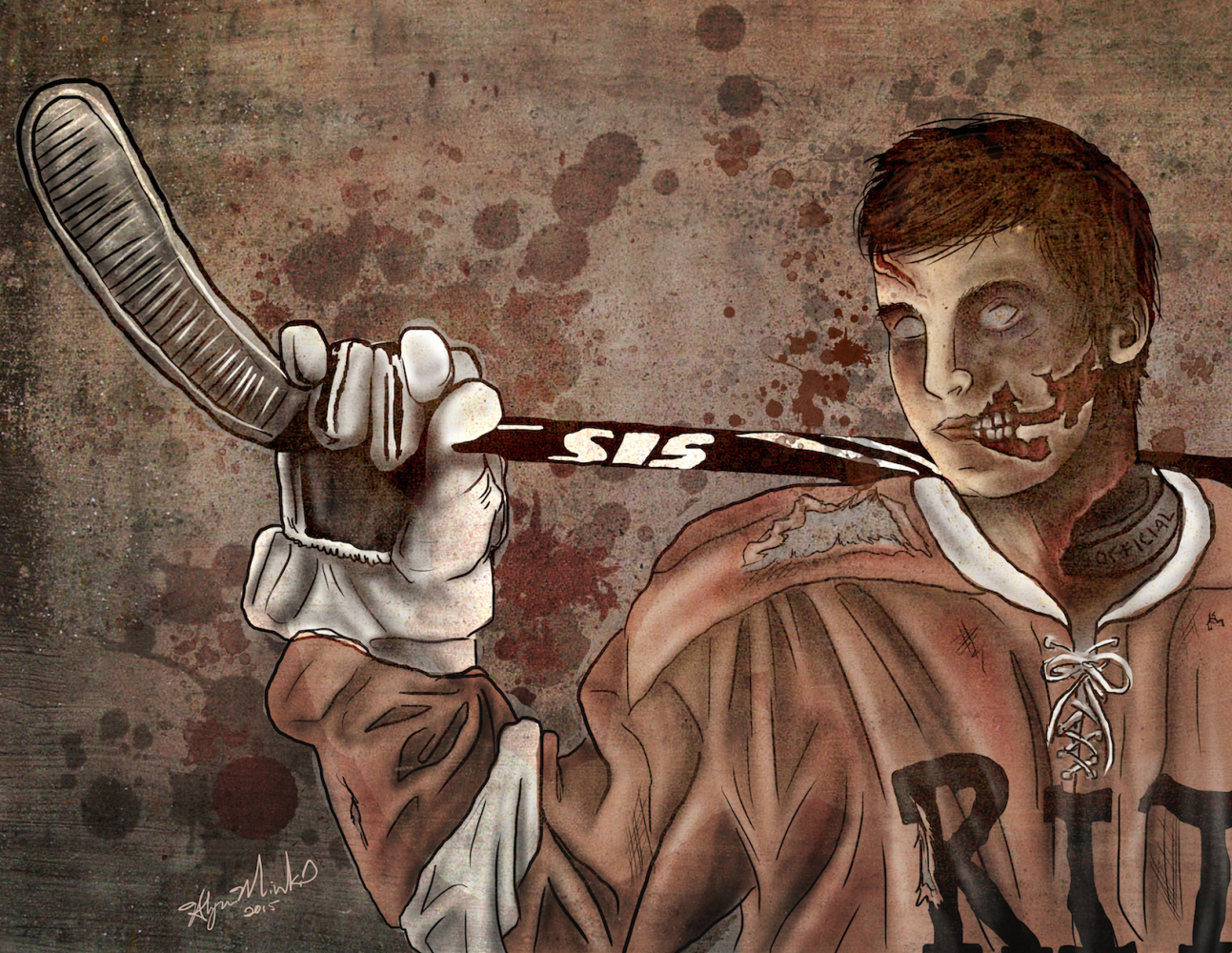Nearly every sports injury is scary to the person getting hurt and their teammates, but some go above and beyond in their ability to make other people squeal, pass out and even have heart attacks. Athletes can go through life-threatening injuries and still go out and play for their team in a matter of days, weeks, or months. This can be a testament to their ability to overcome serious obstacles and their willingness to sacrifice for their love of sport.
Hockey players can experience some of the most gruesome of injuries as they are consistently being hit and thrown around with sharp, razor-like blades on their feet. For example, Buffalo Sabres goalie Clint Malarchuk almost died on the ice after a skate cut his jugular vein. Linesman Pat Dapuzzo's career was ended after a skate nearly cut off his nose. A minor league goal tender had his fingers cut off after a player skated over them and several players have suffered from cut tendons. Even though Malarchuk was the one almost dying on the ice, the horrifying sight of blood spurting out of his neck was enough to give a few audience members heart attacks. Thanks to quick action by the trainers and a ninety minute surgery with 300 stitches, he was able to recover quickly. Malarchuk only spent one night in the hospital, was back practicing after four days and was in the goal a week after the incident.
A similar incident to Malarchuk’s happened in 2006, in the Frank Ritter Ice Arena at RIT. The U.S. development team was playing the RIT men’s hockey when one of the U.S. players’ ice skates came up and sliced teammate Chris Atkinson's throat, cutting his jugular vein.
“Blood started squirting out immediately and everyone in attendance (players, coaches and fans) was instantly horrified,” RIT men's hockey team coach Wayne Wilson said.
The RIT Ambulance and Strong Hospital were able to save his life in the small amount of time they had before he would have bled out.
"I was looking at the play, and after [Palm] got flipped I saw his skate coming toward me," Atkinson recounted. "I closed my eyes, and the next thing I know, I'm going down. I thought my collarbone was broken because I couldn't move my left arm. Then I felt the heat from all the blood pouring down."
It would take Atkinson over a year and a half to play in another hockey game as the incident also severed a nerve in his shoulder. Unfortunately, he was only able to get into minor league hockey and was never able to fulfill his dream of playing in the NHL.
Concussions happen in nearly every sport and are not uncommon, but some of them can get very dangerous. According to Thomas McNulty, President of the RIT Ambulance, concussions are one of the scariest common injuries because of how bad they can get. Severe or multiple concussions can sometimes lead to memory loss, brain damage and psychological disorders triggered by the trauma. One example of a severe concussion happened during Super Bowl 1998 when Denver Broncos running back, Terrell Davis, got kicked in the head and went out cold. He told everyone he was fine when he woke, but was actually slowly going blind. Davis went back in for a single play and was unable to see a thing. The coach told him, “It doesn’t matter if you can see ‘cause we’re gonna fake it to you.” Thankfully, he survived the play without his vision and was able to see again after receiving migraine medication. Davis returned after approximately fifteen minutes and still holds the record he made that day by scoring three touchdowns in a Super Bowl game.
“We have been pretty fortunate over the years to not have anything too crazy," RIT men’s lacrosse coach Jake Coon stated. "But I would say the craziest one that we had was a player losing a testicle after being hit with a shot. I guess that was probably the weirdest of all.”
A similar injury happened to rugby player Wayne Shelford who had his scrotum ripped open by a cleat He had to jog off the field with a testicle hanging out of him. Shelford ended up getting stitched up by the trainer on the bench. The incident was broadcasted on French television. After receiving the stitches, he went back into the game to continue playing.
In wresting, dislocated elbows are fairly common, but that doesn’t stop them from being horrifying. Although RIT men's wrestling coach Scott Stever has seen it happen often and has experienced it with three of his wrestlers during his coaching career, he still considers them to be the scariest and the most gruesome. Dislocated elbows usually result in shock and can even be fatal if it begins hemorrhaging from an open wound. However, the most serious dislocations only occasionally result in reduced range of motion, strength, pain or instability and most wrestlers continue to compete after healing.
Nearly every athlete gets injured at least once in their career and these injuries range from minor to life-threatening. The most surprising thing about the most serious and scariest injuries is the ability of the athletes to spring back and continue playing regardless of their fear.









